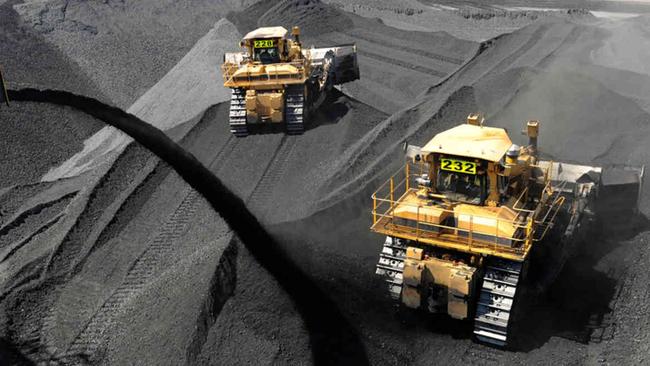Teals lash Labor for coalmines decision
Teal MPs who may be critical to Anthony Albanese’s hopes of a power-sharing agreement in the event of a hung parliament have lashed his government’s approval of three coal mine extensions.

Teal MPs who may be critical to Anthony Albanese’s hopes of a power-sharing agreement in the event of a hung parliament have lashed his government’s approval of three coal mine extensions, amid claims from environmentalists that the projects will emit more than 1.3 billion tonnes of greenhouse gas emissions.
Environment Minister Tanya Plibersek’s approvals under the Environment Protection and Biodiversity Conservation Act takes the total number of coal projects given the green light by the Albanese government to six – five extensions and one new.
This compares to approvals for 61 new renewables projects.
While the Climate 200-backed teals were careful to avoid answering whether the extensions would make their negotiations with the Prime Minister more difficult if Labor lost its majority at the election, none of the MPs who responded to The Australian supported Ms Plibersek’s decision.
They warned any expansion of coal mines would undermine the best chance of limiting global warming to 1.5C or less.
“The people of Kooyong care deeply about climate change and they want Australia to reduce its carbon emissions, not open new coal mines,” Member for Kooyong Monique Ryan said.
“Fossil fuels drive climate change but this decision ignores all the expert advice. It is not possible to reconcile these approvals with the government’s stated commitment to climate action and difficult to understand how these approvals can be accommodated within the legislated safeguard mechanism, which is aimed at decreasing carbon emissions over time.”
Kylea Tink, whose seat of North Sydney will be abolished at the election, labelled it “climate and environmental vandalism” by the government. “This decision fails young people, and fails future generations.”
Member for Mackellar Sophie Scamps said the approvals would “destroy our precious farmland and food bowl, harming the health of locals and wrecking the climate”. “As usual, the Labor government is talking out of both sides of its mouth when it comes to action on climate change,” Dr Scamps said.
Zali Steggall, who has won two elections in the once blue ribbon seat of Warringah, said Ms Plibersek was being disingenuous in relying on the safeguard mechanism to minimise the climate impact of the mine extensions because scope 3 (indirect) emissions that would arise from the projects would not be taken into account.
The government would not confirm the mines would release 1.3 billion tonnes of emissions but Climate Change and Energy Minister Chris Bowen’s spokeswoman said the safeguard mechanism, which captures new and existing coal mines, would deliver more than 200 million tonnes of emissions reduction to 2030.
The Greens – who like the teals will be key to Labor forming a majority government in a hung parliament scenario – and climate groups also lashed Ms Plibersek’s decision to approve the three projects from Whitehaven Coal, MACH Energy and Yancoal in the Hunter Valley, which is home to the key NSW Labor-held marginal seat of Hunter.
Opposition environment spokesman Jonno Duniam said if Ms Plibersek could extend three coal mines, she could also approve the Blayney gold mine, and suggested it was done for political purposes. “They are willing to extend coal mines in the Hunter because their local members are under pressure to hold their seats, but aren’t willing to approve a gold mine in central west NSW. It is curious that they approved these extensions very late in the lead-up to an election”.
A Yancoal spokesman said the Ravensworth mine had been in “care and maintenance” since 2014. “Accessing these unmined metallurgical (steelmaking) coal resources could extend the life of Ashton by around seven years,” he said. The Ashton and Ravensworth mines were “next to each other” and the extension was “an efficient and beneficial use of NSW resources and ensures continued employment and economic benefits for local and regional communities”.




To join the conversation, please log in. Don't have an account? Register
Join the conversation, you are commenting as Logout